Maintaining a healthy diet is crucial for managing diabetes. One key aspect of diabetes management is monitoring carbohydrate intake, as carbs can significantly impact blood sugar levels. While carbs are an essential part of our diet, not all carbs are created equal. Some carbs can cause blood sugar spikes, increasing the risk of diabetes complications. In this blog, we will explore ten dangerous carbs that diabetics often consume, along with healthier alternatives. By understanding the impact of these carbs on blood sugar levels, diabetics can make more informed food choices and better control their diabetes.
Understanding Carbs and Diabetes
Carbohydrates are the body’s primary source of energy, and they are found in various foods, including grains, fruits, vegetables, and dairy products. When consumed, carbs break down into glucose, which is then used as fuel by the body. However, for individuals with diabetes, managing carb intake is crucial due to the impact of carbs on blood sugar levels. The American Diabetes Association recommends following a diabetes meal plan that includes a balanced intake of complex carbs, protein, and healthy fats. By understanding the recommended amount of grams of carbs for individuals with diabetes and their role in diabetes management, individuals can better control their blood glucose levels and reduce the risk of complications.
What are Carbs?
Carbohydrates, or carbs, are macronutrients that provide the body with energy. They are composed of sugars, fibers, and starches, and they can be found in various food sources. Carbs can be categorized into two main types: simple carbs and complex carbs.
Simple carbs are quickly broken down by the body, leading to a rapid increase in blood sugar levels. Examples of simple carbs include white bread, white rice, sugary drinks, and sweets. On the other hand, complex carbs take longer to digest, providing a slow and steady release of glucose into the bloodstream. Complex carbs are found in foods such as whole grains, vegetables, and legumes, and it’s important to consume them in small amounts to maintain a healthy blood sugar level.
It’s important for diabetics to identify different types of carbs as they have varying effects on blood sugar levels. Monitoring carb intake and choosing healthy carbs is essential for effective diabetes management.
How Carbs Affect Blood Sugar Levels
Carbohydrates have a direct impact on blood sugar levels, especially in individuals with diabetes. When carbs are consumed, they break down into glucose, entering the bloodstream and raising blood sugar levels. This is particularly important for individuals with diabetes, who struggle with blood sugar control.
High blood sugar, also known as hyperglycemia, occurs when there is an excessive amount of glucose in the blood. Hyperglycemia can cause symptoms such as frequent urination, increased thirst, fatigue, and blurred vision. On the other hand, low blood sugar, or hypoglycemia, happens when blood sugar levels drop too low. Symptoms of hypoglycemia include dizziness, shakiness, confusion, and irritability.
To maintain stable blood glucose levels, it is important for diabetics to understand the impact of carbs on their blood sugar control. By monitoring carb intake and making healthy food choices, diabetics can effectively manage their blood sugar levels and reduce the risk of diabetes-related complications.
Identifying Dangerous Carbs for Diabetics
While carbs are an important part of a healthy diet, there are certain carbs that can be especially dangerous for diabetics. These carbs have a high glycemic index, meaning they cause a rapid rise in blood sugar levels. Consuming these dangerous carbs can lead to blood sugar spikes, insulin resistance, weight gain, and an increased risk of diabetes complications. It is important for diabetics to identify and avoid these dangerous carbs to maintain stable blood glucose levels and promote overall health. Let’s explore some of the most common dangerous carbs that diabetics often consume and learn about healthier alternatives.
The Trouble with White Bread
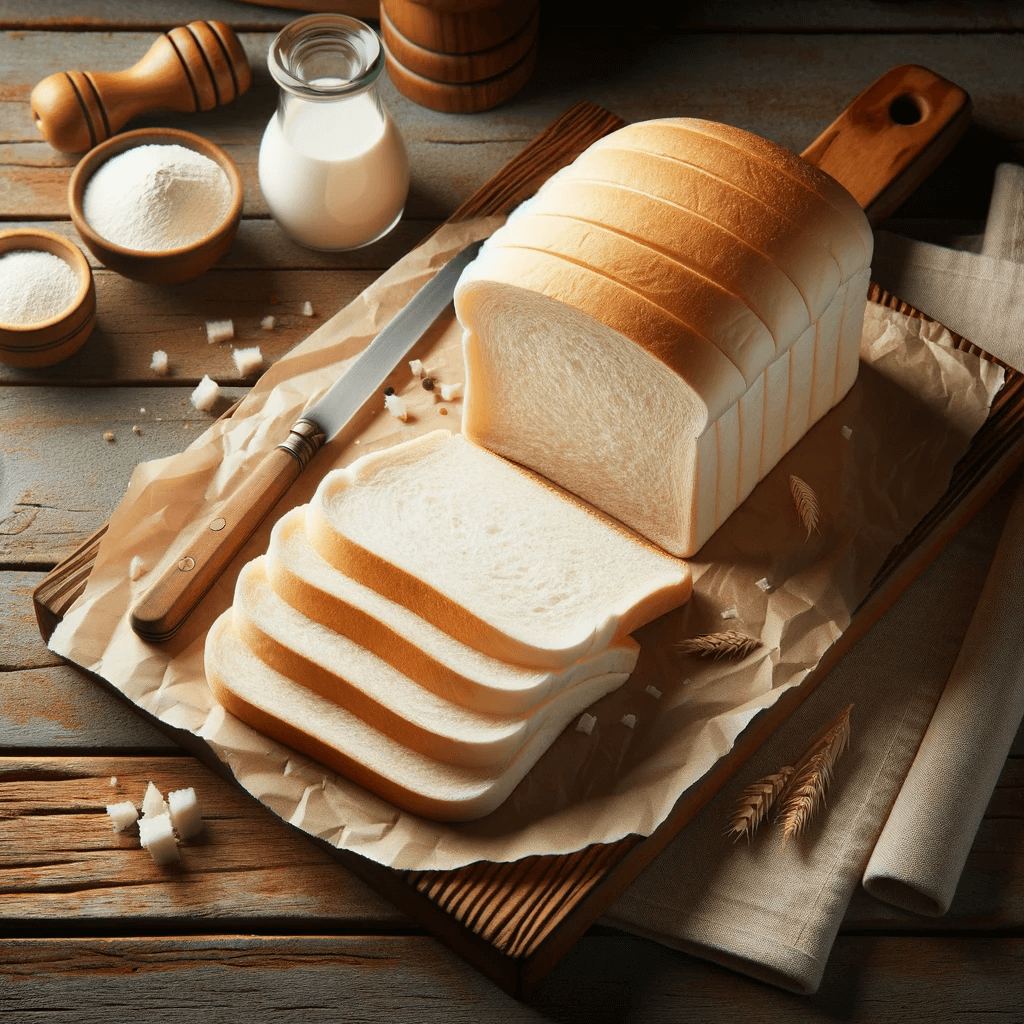
White bread is a staple in many people’s diets, but it can be particularly problematic for diabetics. White bread is made from refined grains, which have been stripped of their fiber and nutrient content. This process gives white bread a high glycemic index, causing it to quickly raise blood sugar levels.
When white bread is consumed, it is rapidly broken down into glucose, leading to a spike in blood sugar. This can be particularly challenging for diabetics, as it can be difficult to control blood sugar levels after consuming white bread. Additionally, white bread lacks the nutritional value provided by whole grains, which contain more fiber, vitamins, and minerals.
To make healthier choices, diabetics should opt for whole grain bread instead of white bread. Whole grain bread is made from whole grains, which retain their fiber and nutrient content. This slows down the digestion process, resulting in a slower release of glucose into the bloodstream. By choosing whole grain bread over white bread, diabetics can better control their blood glucose levels and reduce the risk of diabetes complications.
The Hidden Dangers of Sugar-Coated Breakfast Cereal
Sugar-coated breakfast cereals may seem like a convenient and tasty option, but they can be highly dangerous for diabetics. These cereals are often packed with added sugars, including maple syrup, which can quickly raise blood sugar levels and contribute to insulin resistance. Here are some of the hidden dangers of sugar-coated breakfast cereal:
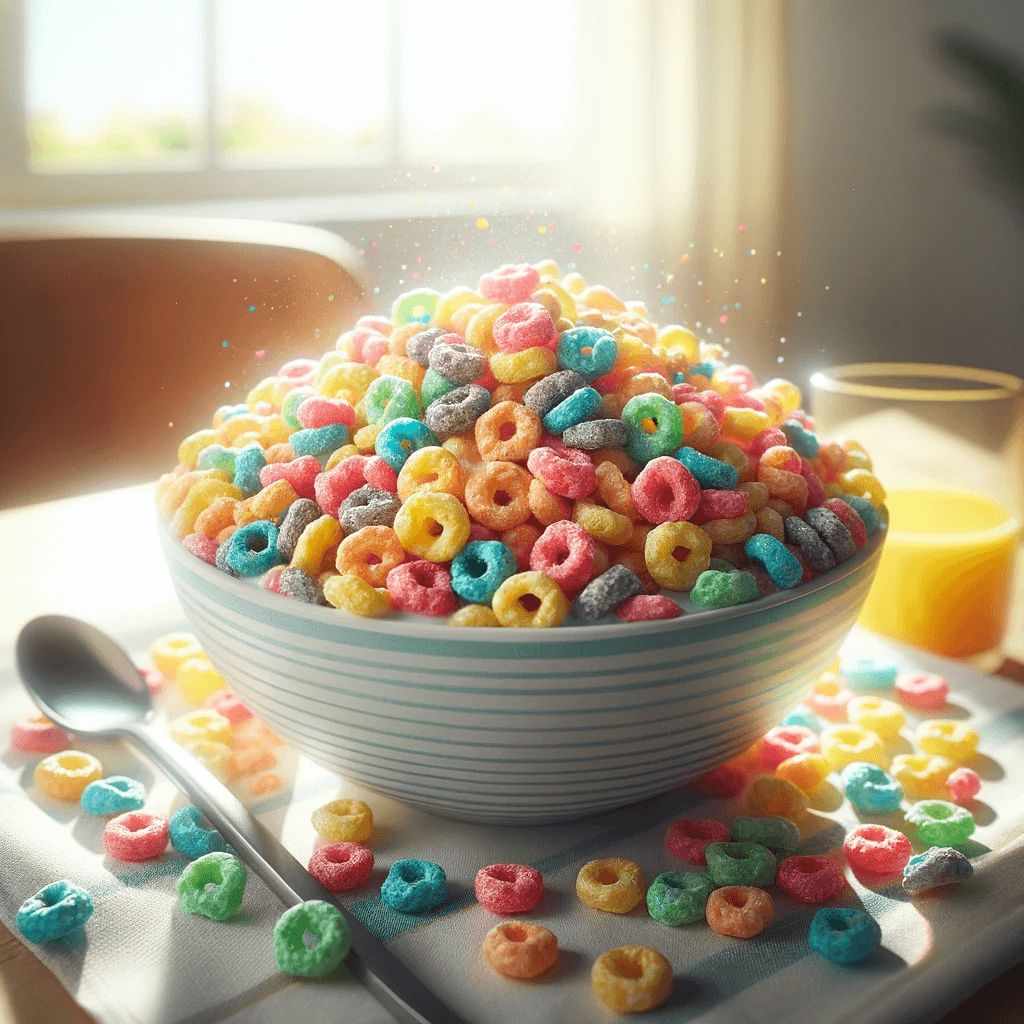
- High sugar content: Many sugar-coated cereals have alarmingly high sugar content, sometimes reaching up to 30 grams or more per serving. This can cause blood sugar spikes and impact diabetes management.
- Lack of fiber: Sugar-coated cereals are often low in fiber, which is essential for slowing down the digestion of carbs and maintaining stable blood sugar levels.
- Unhealthy ingredients: In addition to added sugars, sugar-coated cereals may contain unhealthy fats, artificial colors, and preservatives, which can contribute to overall poor health.
- Negative impact on satiety: Sugar-coated cereals are typically low in protein and healthy fats, which are important for maintaining satiety and preventing overeating throughout the day.
- Misleading health claims: Some sugar-coated cereals may be marketed as “whole grain” or “high fiber,” but these claims can be deceiving. It’s crucial to read food labels carefully to determine the true nutritional value of these cereals.
- To make a healthier choice, diabetics should opt for low-sugar, high-fiber cereals or homemade options like overnight oats or whole grain granola. By choosing alternatives to sugar-coated breakfast cereal, diabetics can better control their blood sugar levels and support overall health.
Why White Rice Can be Harmful for Diabetics
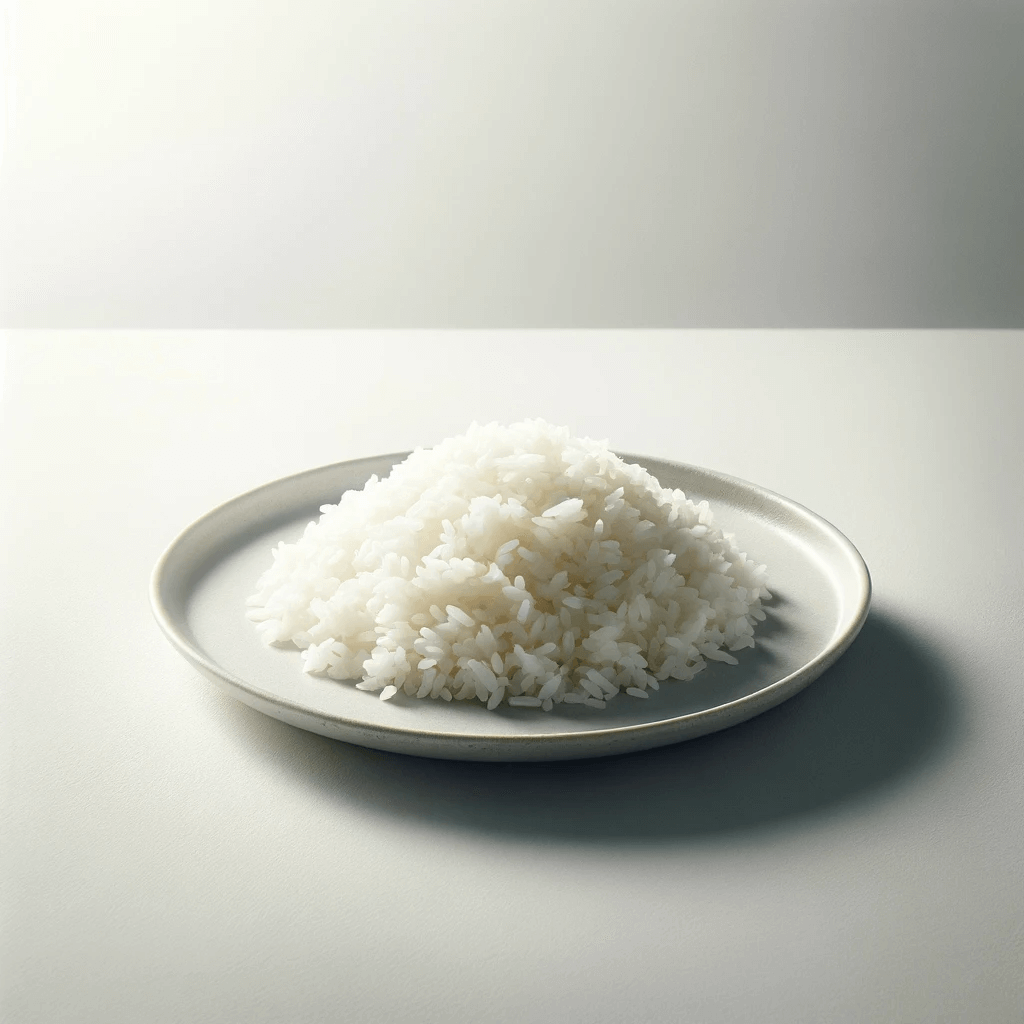
White rice, a staple in many diets, can have negative effects on blood sugar levels, especially for diabetics. White rice is processed rice with the bran and germ removed, leaving mainly the starchy endosperm. This makes white rice a simple carb, easily digested and rapidly raising blood sugar levels. Here’s why white rice can be harmful for diabetics:
- High glycemic index: White rice has a high glycemic index, meaning it raises blood sugar levels quickly. This can be problematic for diabetics who struggle with blood sugar control.
- Lack of fiber: White rice lacks the fiber found in brown rice, which can help slow down the digestion of carbs and maintain more stable blood sugar levels.
- Insulin resistance: Regularly consuming white rice can contribute to insulin resistance, making it more challenging for the body to process glucose effectively.
- Increased diabetes risk: Studies have shown that a high intake of white rice is associated with an increased risk of developing type 2 diabetes.
- Weight gain: White rice is calorie-dense and can contribute to weight gain, which further impacts blood sugar control and overall health.
- For better blood sugar control, diabetics should consider switching to brown rice or other whole grain alternatives. Brown rice retains the bran and germ, providing more fiber, vitamins, and minerals compared to white rice. By making this simple swap, diabetics can better manage their blood glucose levels and reduce the risk of diabetes-related complications.
Unhealthy Beverages for Diabetics
Regular soda, a common choice, is laden with sugar and offers no nutritional value. It can lead to weight gain and increase the risk of heart disease. Bottled fruit juice may seem healthy but often contains added sugars and lacks the fiber found in fresh fruit juice. These beverages, including soft drinks, can cause blood sugar levels to spike, making them unsuitable for diabetics. When selecting drinks, it’s important to read food labels and opt for healthier alternatives like water, herbal tea, or freshly squeezed fruit juice in moderation.
The Sugary Threat of Regular Soda
Regular soda, laden with added sugars, can significantly affect blood glucose levels, increasing the risk of diabetes complications. Even diet soda can negatively impact insulin resistance. Opting for sugar-free or low-calorie drinks is a healthier choice for diabetics, as regular soda’s high carb content can contribute to weight gain and hinder weight loss efforts.

Consuming soda regularly is associated with a higher risk of heart disease and high blood pressure, making it a dangerous choice for those looking to improve their health and manage their diabetes. It’s crucial for diabetics to be mindful of their beverage choices and consider healthier alternatives, such as water or unsweetened tea, to aid in weight loss and maintain blood sugar levels within a healthy range.
Bottled Fruit Juice vs. Fresh Fruit Juice

When comparing bottled fruit juice to fresh fruit juice, it’s important to note that the former often contains added sugars, leading to blood sugar spikes. On the other hand, fresh fruit juice provides natural sugars and essential nutrients in moderation.
However, consuming whole fruits is a better choice than fruit juice for diabetes management since fruit juice lacks the fiber content found in whole fruits, impacting blood sugar levels. It’s crucial to monitor portion sizes of fruit juice for effective blood sugar control and overall diabetes management.
High-Carb Snacks and Their Effects on Blood Sugar
Chocolate bars and potato chips are high-carb snacks that can cause spikes in blood sugar levels for diabetics. Dried fruits, despite being perceived as healthy, are also concentrated sources of sugar. These snacks can lead to fluctuations in blood sugar, increasing the risk of heart disease and high blood pressure. Understanding the impact of high-carb snacks on blood sugar, and managing it with proper nutrition and diabetes medication, is crucial for diabetics to effectively manage their condition.
Chocolate Candy Bars: A Sugar Bomb
Chocolate candy bars pose a significant risk for diabetics due to their high sugar and carb content. Consumption of such foods can lead to a spike in blood sugar levels, potentially causing long-term complications such as nerve damage, kidney disease, and heart disease.

As a result, diabetics should prioritize low-carb and low-sugar alternatives. Opting for dark chocolate with higher cocoa content, homemade sugar-free chocolate treats, or fruit-based desserts can help satisfy cravings without causing harmful blood sugar spikes.
The Problem with Potato Chips
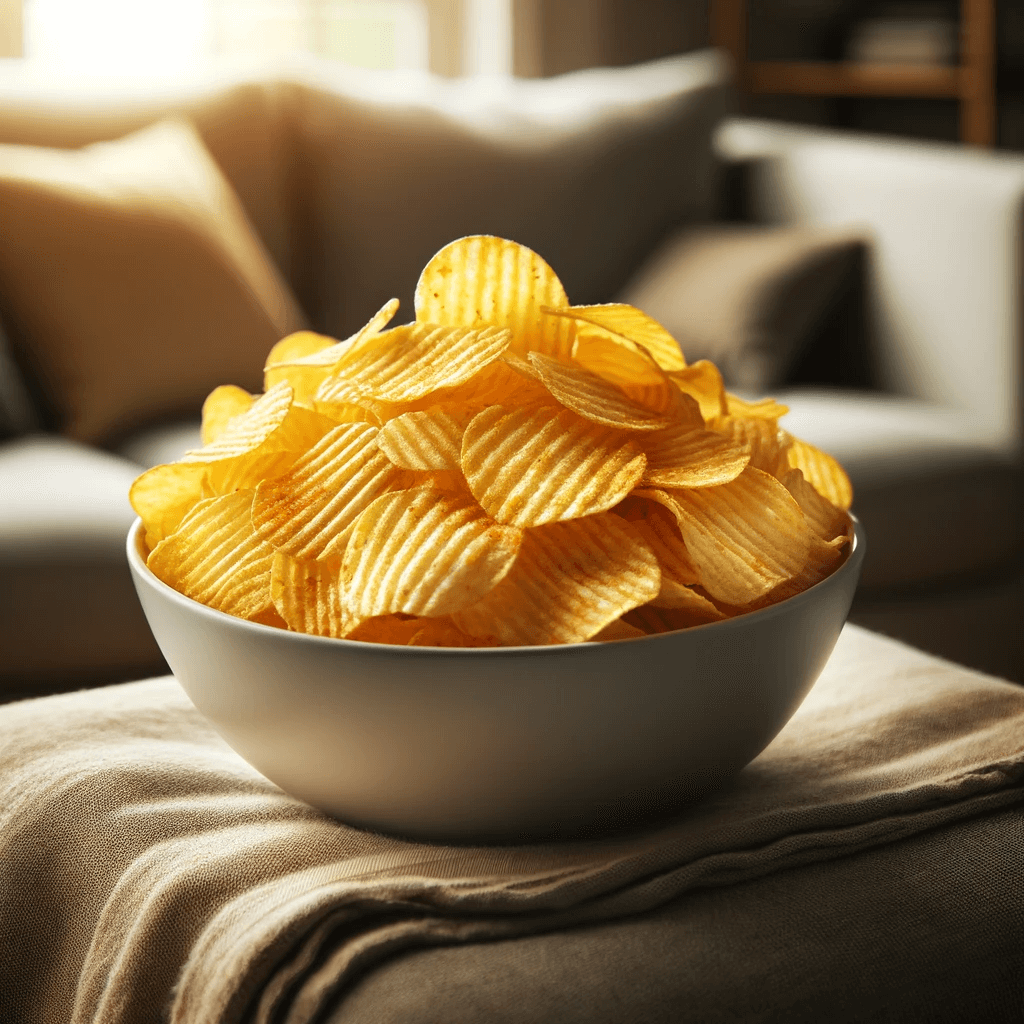
Potato chips, high in carbs, can lead to blood sugar spikes in diabetics. They often contain unhealthy fats and additives. Healthier alternatives like baked veggie chips or air-popped popcorn can be better options. Diabetics must monitor their carb intake and make smart food choices to manage blood sugar levels effectively.
Dried Fruit: A Concentrated Source of Sugar
Dried fruit, with its high natural sugar content and reduced water content compared to fresh fruit, requires careful portion control. This concentration of sugar can lead to sudden spikes in blood sugar levels. Opting for whole fruit over dried fruit is essential for better blood sugar management. Choosing fresh fruit over dried fruit helps to regulate blood sugar levels effectively.
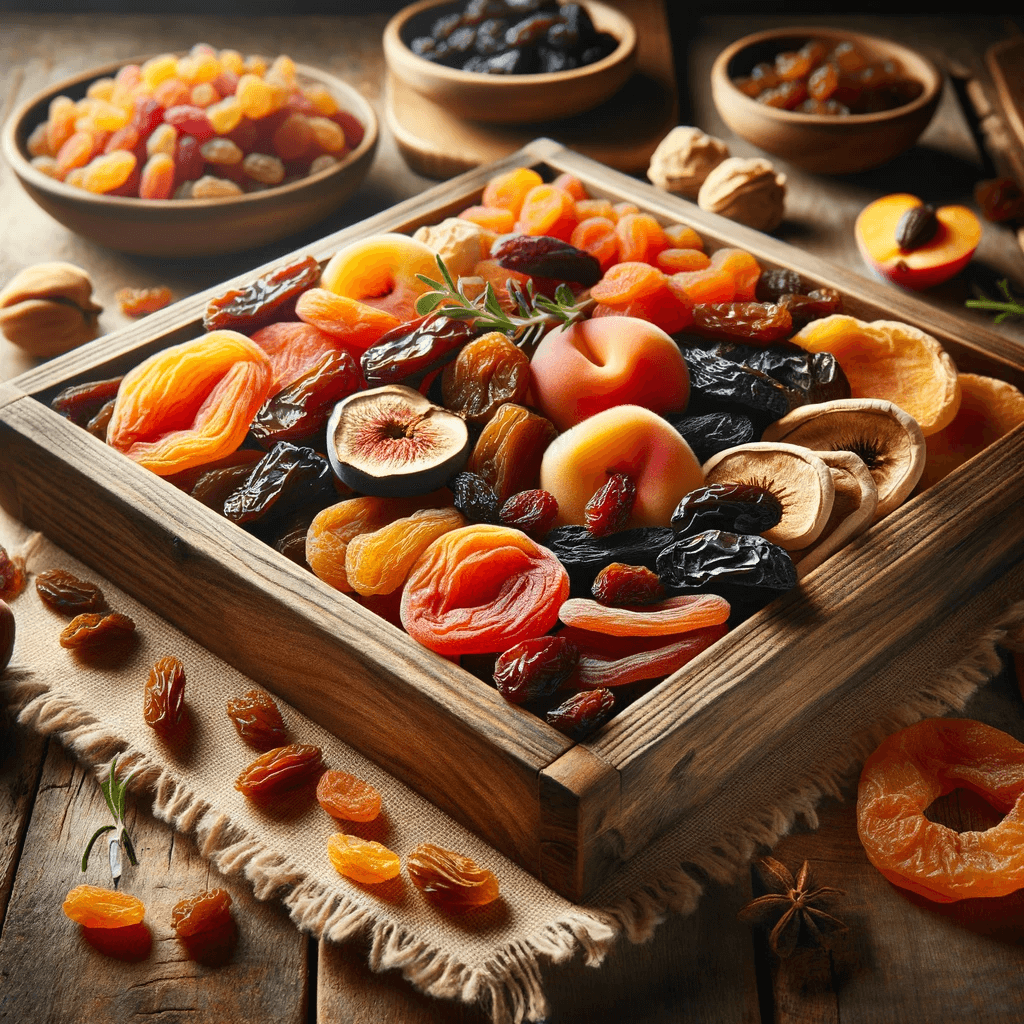
Fast Food and Diabetes

Fast food, often loaded with trans fats and saturated fats, can significantly impact blood sugar levels. The high content of simple carbohydrates in fast food burgers can lead to a rapid rise in blood sugar levels, posing a risk for individuals with diabetes.
Moreover, regular consumption of fast food has been associated with an increased likelihood of developing diabetes and heart disease, according to the American Heart Association (AHA). By minimizing fast food intake, individuals can effectively manage their blood sugar levels and overall health while reducing the risk of insulin resistance and weight gain.
Fast Food Burgers: A High-Carb Choice
Fast food burgers, commonly loaded with white flour buns, contribute to high carb intake, leading to blood sugar spikes. Paired with sugary drinks, they further impact blood sugar control. Opting for healthier, low-carb alternatives is essential for better blood sugar management, especially considering the high levels of unhealthy fats found in fast food burgers, which can adversely affect diabetes management.
Misleading ‘Healthy’ Foods
Flavored yogurt, often high in added sugars, impacts blood glucose levels. Many “healthy” foods, like flavored yogurt, contain hidden sugars, affecting blood sugar control and causing spikes. Misleading “healthy” foods contribute to higher blood sugar levels and insulin resistance, sabotaging efforts to manage blood sugar levels. Consuming flavored yogurt regularly can sabotage blood sugar management.
Flavored Yogurt: Not as Healthy as You Think
Alternatives to White Bread and White Rice can be beneficial for managing diabetes, reducing the intake of high-carb foods, and controlling blood sugar levels. Healthier Beverage Choices like plain yogurt over flavored varieties, and homemade meals versus fast food are crucial. Snacking Smart with alternatives to potato chips and candy bars can help in maintaining a healthy diet.

Making Healthier Choices
The Benefits of Homemade Meals Vs. Fast Food, including reducing the intake of red meat, include better control of ingredients and portion sizes. Choosing Plain Yogurt Over Flavored Varieties reduces sugar intake and supports a healthier lifestyle.
Alternatives to White Bread and White Rice
Switching to whole grain alternatives from white bread and rice can effectively help in regulating blood sugar levels. Whole grains such as brown rice not only provide more nutritional value but also lead to fewer spikes in blood sugar levels. Opting for whole grains over white bread and rice can significantly contribute to better control of blood sugar levels. The healthy carbohydrates present in whole grains have a more positive impact on blood sugar levels, supporting improved blood sugar management.
Healthier Beverage Choices
When considering healthier beverage choices, it’s essential to opt for sugar-free alternatives like water and herbal teas. These options offer better blood sugar control, aiding in the management of blood sugar levels. By choosing unsweetened drinks and avoiding high-sugar beverages, individuals can maintain stable blood glucose levels, supporting overall health. Such choices also play a crucial role in diabetes control, helping individuals better manage their blood sugar levels. Making this shift can positively impact overall well-being and support disease control, including the risk of heart disease and high blood pressure.
Snacking Smart: Alternatives to Potato Chips and Candy Bars
Choosing smarter snack options can significantly impact blood sugar management and overall health for individuals with diabetes. Opt for low-carb, low-sugar alternatives to high-carb and high-sugar snacks like potato chips and candy bars. This choice supports better blood sugar control throughout the day and reduces the risk of blood sugar spikes and high cholesterol levels. Healthier snack selections also contribute to improved diabetes management, aiding in the prevention of complications such as heart disease and high blood pressure.
The Benefits of Homemade Meals Vs. Fast Food
Opting for homemade meals over fast food supports better blood sugar management and overall health. Homemade meals offer better control over ingredients, impacting blood sugar levels and glucose control. Preparing homemade meals allows for healthier ingredient choices, including sugar and carbs, affecting blood sugar levels. This choice aids in blood sugar control compared to fast food consumption. It provides better control over sugar and carb intake. Eating homemade meals can aid in blood sugar control and support improved overall health in comparison with fast food consumption.
Choosing Plain Yogurt Over Flavored Varieties
When opting for yogurt, choosing plain over flavored varieties is crucial. Unlike flavored yogurt, plain yogurt contains natural sugars and has low sugar content. The added sugar and high carbs in flavored yogurt can disrupt blood sugar levels. Switching to plain yogurt, specifically Greek yogurt, is a healthier choice for diabetics, aiding in better blood sugar control and management. By making this simple switch, one can effectively manage their blood sugar levels, contributing to overall better health.
You Are What You Eat: Final Thoughts
Monitoring carbohydrate intake is essential for effective diabetes management. Choosing nutritious carbohydrates, like whole grains, is vital for overall health and blood sugar control. Informed food decisions play a significant role in managing blood glucose levels. Understanding carbohydrate consumption and opting for healthy choices are critical for individuals with diabetes, as carbohydrates make up about half of a person’s daily calories according to the Centers for Disease Control and Prevention (CDC). A well-balanced diet incorporating complex carbohydrates is crucial for maintaining stable blood sugar levels.
Can Diabetics Enjoy Carbs Safely?
Diabetics can safely enjoy carbs by choosing healthy, low-glycemic options. Opt for complex carbs like fruits, vegetables, and whole grains to prevent blood sugar spikes and select foods that won’t rapidly raise blood sugar levels. And for a sweet treat, consider low-sugar or zero-sugar ice cream varieties. Save it for special occasions or enjoy it in small amounts. Balancing carb intake with other nutrients is essential for diabetics. With mindful choices, carbs can be incorporated into their diet without adverse effects.
Conclusion
In conclusion, it is crucial for diabetics to be aware of the types of carbs they consume to maintain stable blood sugar levels. Avoiding dangerous carbs such as white bread, sugar-coated breakfast cereal, white rice, regular soda, and high-carb snacks like chocolate candy bars, potato chips, and dried fruit can significantly impact their overall health. Opting for healthier alternatives like whole grain bread, brown rice, water, unsweetened beverages, and homemade meals can make a positive difference. By making smarter choices and managing carb intake, diabetics can better control their blood sugar levels and improve their overall well-being. Remember, you are what you eat, so choose wisely and prioritize your health.
Frequently Asked Questions
What are some examples of high-carb foods that diabetics should avoid?
High-carb foods that diabetics should avoid include white bread, pasta, and rice. Sweetened beverages like soda and fruit juice are also high in carbs. Processed snacks such as chips and cookies can be high in carbs too. Instead, diabetics should opt for whole-grain bread, brown rice, vegetables, and low-sugar fruits.
How can consuming too many carbs affect blood sugar levels in diabetics?
Consuming excessive carbs can cause blood sugar levels to spike in diabetics. As carbs are converted into glucose, the body’s primary fuel source, diabetics need to be mindful of their carb intake. Choosing low-glycemic index foods and reducing carb consumption can help manage blood sugar levels and reduce complications.
Are there any healthy alternatives to high-carb foods for diabetics?
There are numerous healthy alternatives for diabetics looking to replace high-carb foods. Incorporating non-starchy vegetables, whole grains, and lean proteins into their diet is a great option. They can also enjoy low-carb fruits like berries. Consulting with a healthcare professional or registered dietitian is important for personalized recommendations.
How can managing carb intake help diabetics better control their blood sugar levels?
Managing carb intake is crucial for diabetics to maintain stable blood sugar levels. By eating a balanced diet with complex carbs, protein, and healthy fats, diabetics can prevent spikes in blood sugar. It’s recommended to work with healthcare professionals or registered dieticians to create personalized carb management plans.
What are some common high-carb foods that diabetics should avoid?
Diabetics should avoid high-carb foods like white bread, pasta, and rice. Sugary drinks such as soda and fruit juices can also cause blood sugar spikes. Processed snacks like chips may seem low in sugar but are often high in carbs. Opt for whole-grain foods, vegetables, and lean proteins instead.





